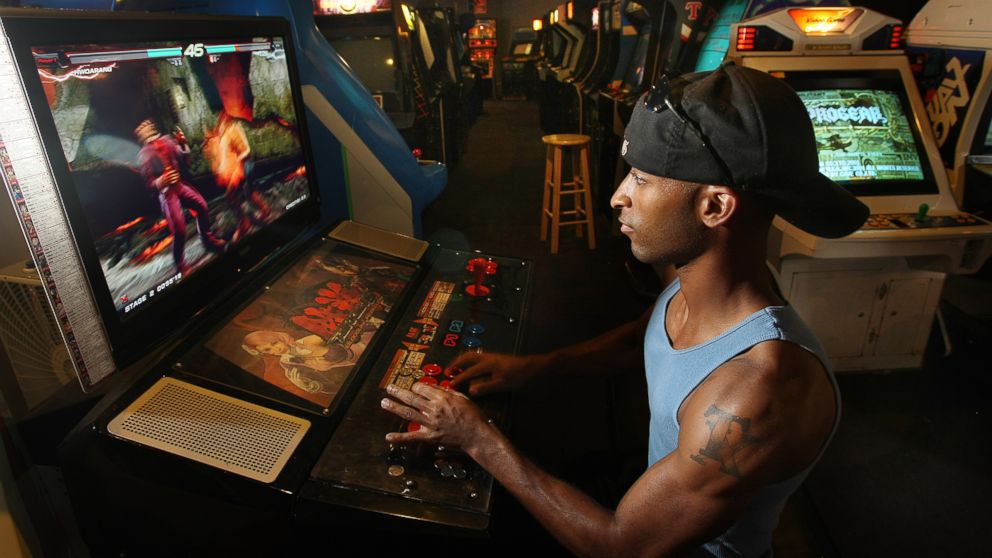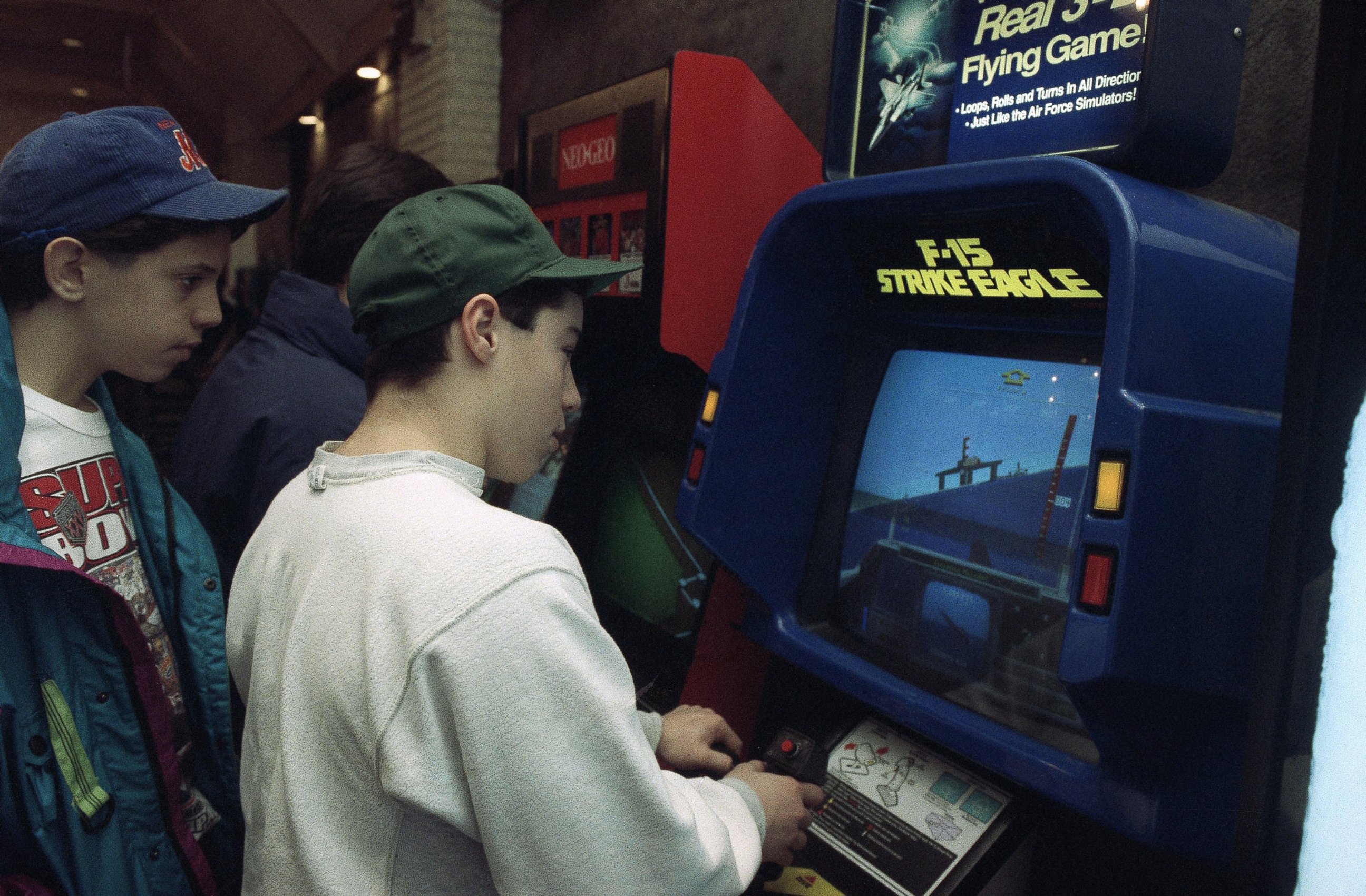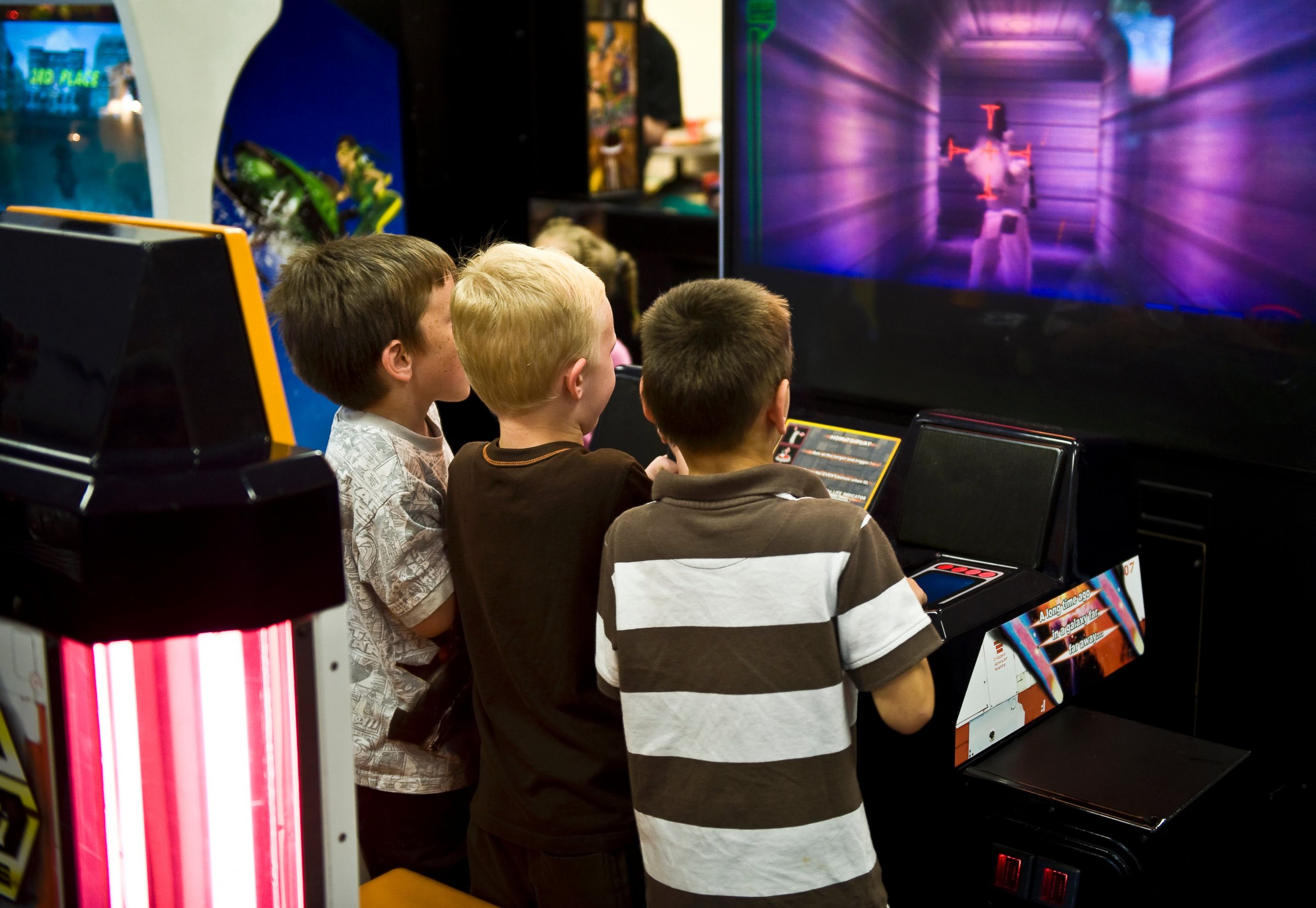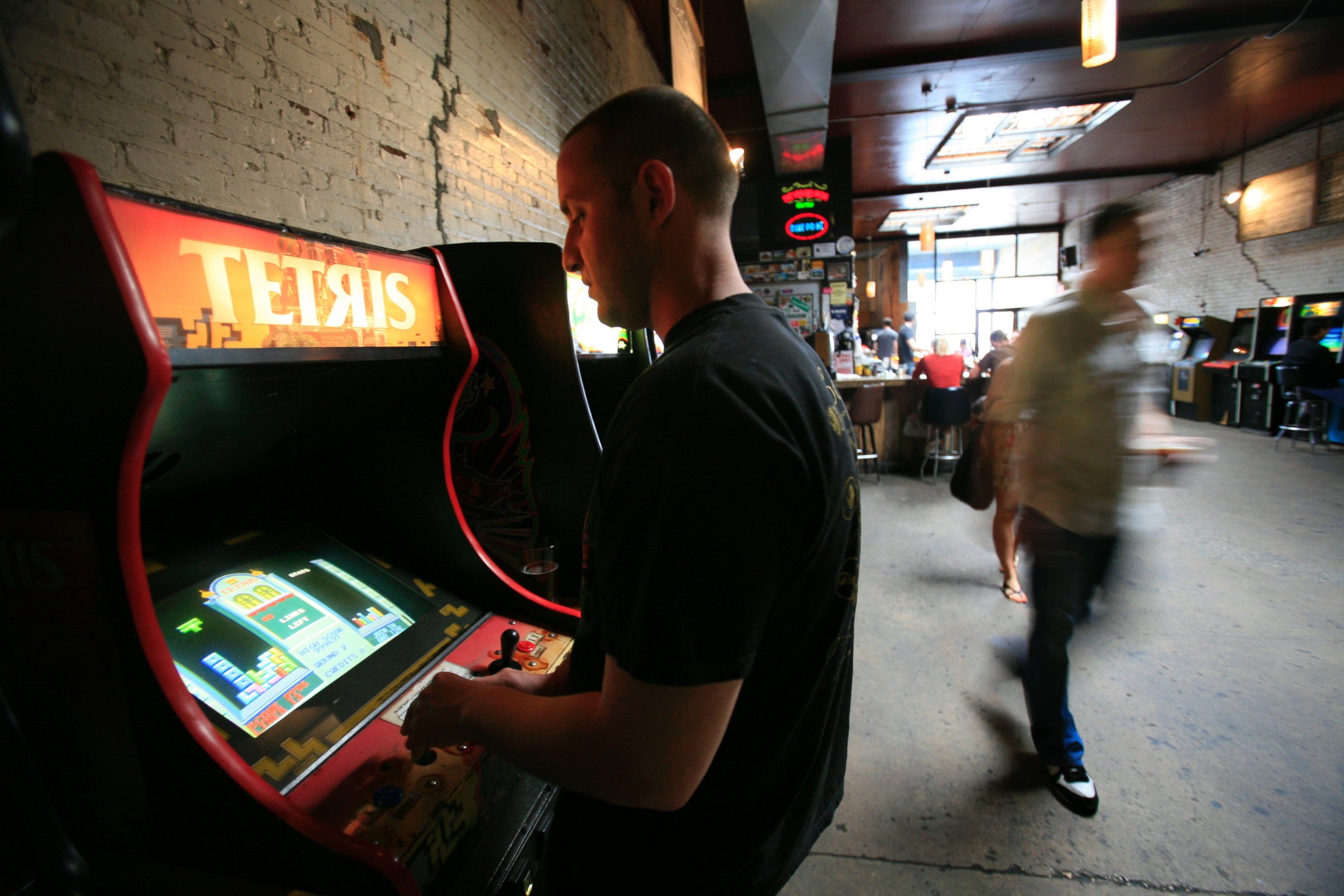The Death and Resurgence of Arcades in America
How smartphones, home consoles killed the arcade -- and how to go retro today.

— -- Traditional arcades, once popular after-school hangouts and staples of shopping malls, have long been replaced by smartphone technology and at-home gaming systems like the Nintendo Wii and Sony’s PlayStation.
But it wasn't always like that.
Tommy Williams remembers when they were on “every block” where he grew up in Newport Beach, California, and how they later started to disappear, all shutting down by the late '80s and early '90s.
Guy Turns NYC Apartment Into Arcade, Loses Fiancee
“When you had Nintendo and Sega, and the console war started, I think that’s when they closed up,” Williams said.
The popular games still exist, albeit in another form: Today’s smartphones and tablets can play old favorites like "Pac Man" and "Mortal Kombat."
“It’s transformed in the past couple of decades, the access to games,” said Williams, who does public relations for ZQGame, a video game company in Los Angeles, “from the boardwalk to having it in the palm of our hands.”

But recently, the retro games have popped up in other places -- as nostalgic attractions in bars, bowling alleys and restaurants, for example. There are even museums where people can gawk at the vintage machines, now baffling to kids raised on shrinking smartphones and increasingly tiny tablets.
Actually, the sale of video game machines has remained steady in the past couple decades, according to Andrew Eloff, co-founder of the video game manufacturer Raw Thrills Inc., known for producing games like "Big Buck Hunter" and "H2Overdrive."
While traditional arcades are gone, he said, the machines are still around -- just in different spaces.
"The story of the death of the arcade comes around every so often," he said. "The arcade is definitely dead, but what's come up in its place is really cool -- these nostalgic, retro bar arcades and also these big mega-arcades like Dave & Busters."
Many adults today have fond memories of afternoons wasted sliding quarters into those bulky arcade games.
“There was something special about once or twice a summer getting to go to the arcade and play pinball and Pac Man,” said Chris Trimper, whose family owns Marty’s Playground in Ocean City, Maryland.
He says the business, a longtime landmark on boardwalks, is struggling, noting that “it’s hard to make money a quarter at a time.”

Ken Kalada, owner of Yestercades in Red Bank, New Jersey, takes a different approach to keeping the doors open -- he charges $8.75 an hour instead of 25 cents per play.
Kalada opened his arcade when others had all but disappeared -- in 2011.
“It was something I’d always wanted to do as a kid,” he told ABC News. “It’s something you don’t see anymore, from the classic arcade cabinets to the social environment.”
But Kalada’s arcade isn’t quite like the ones he remembers from childhood. For one thing, he offers a mix of games -- traditional arcade machines along with home consoles that today’s kids are used to.
Young, uninitiated arcade-goers gravitate toward redemption-style games that reward players with tickets, or popular crane games, where pricey prizes like Coach purses and Xboxes are always just outside the crane’s reach.
“It’s not enough for them to go and get a high score and put their initials on a board because they can do that at home,” said Michael Meyers, a video game industry executive. “You can just go on Xbox and be on the leaderboard for that.”

He said arcades began dying off because they stopped being profitable.




